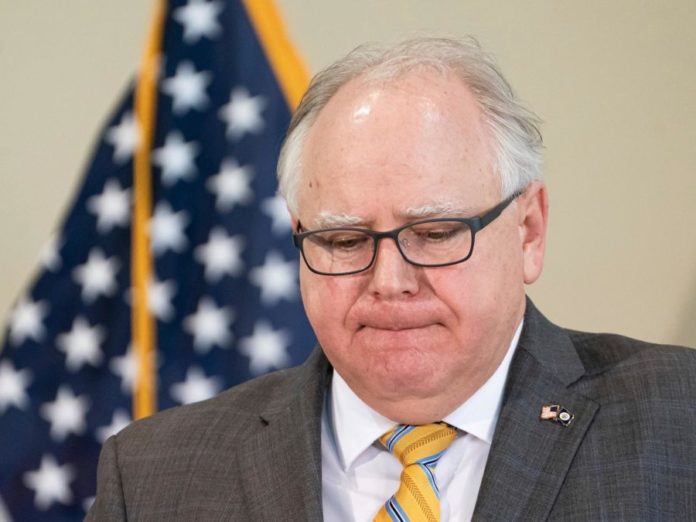(The Center Square) – The result of a court hearing Thursday could impact the daily lives of about 5.6 million Minnesotans.
Ramsey County District Court Judge Thomas Gilligan heard from Minnesota Solicitor General Liz Kramer and Erick Kaardal, who’s representing more than a dozen state legislators and the Free Minnesota Small Business Coalition that claim harm under Gov. Tim Walz’s executive orders.
The plaintiffs seek to invalidate the Democratic governor’s 79 executive orders that they claim violate civil liberties of Minnesotans, including through restricted business capacities.
Walz first declared a peacetime state of emergency on March 13 in response to COVID-19 and has extended it through Aug. 12, which would tally 152 days.
“The statutes authorizing peacetime emergency executive orders are themselves unconstitutional,” Kaardal said in a previous statement. “Under the state constitution and appellate case law, pure legislative power cannot be delegated to or exercised by the executive branch.”
About 475 people watched the attorneys spar through Zoom Thursday morning.
Kaardal has characterized Walz’s orders as a “constitutional clown show.”
The lawsuit argues that Walz violated the state Constitution’s nondelegation doctrine that separates branches of power by making executive orders that carry the power and punishments of a law.
Kaardal argued Walz was acting with almost unchecked powers, asking “Are we all now wards of the governor?”
Kramer said the goal plaintiffs are seeking would leave Walz powerless to respond to a possible second wave of COVID-19.
“This flies in the face of common sense, it flies in the face of public health recommendations, and it flies in the face of Minnesota law,” Kramer said.
Kramer called the nondelegation doctrine the “crux of the case”, and argued that under statute 12.31, the governor’s orders were limited to situations that endanger life and property, and that overburden local government resources.
The lawsuit argues that statute 12.31 doesn’t authorize a governor to proclaim a state of emergency for public health purposes, but just for “an act of nature, a technological failure or malfunction, a terrorist incident, an industrial accident, a hazardous materials accident, or a civil disturbance.”
The legislature didn’t grant this provision, the lawsuit argues, because it intended for the governor and lawmakers to work together in such circumstances.
Kramer pointed out that the legislature can end Walz’s emergency powers through a majority vote by each chamber.
The GOP-controlled Senate has voted twice to end them, but the DFL-dominated House hasn’t agreed.
“I’m a little bit uncomfortable being the referee between two branches of government,” Gilligan said.
Kramer countered Kaardal’s claim that Walz has unchecked power.
Kramer cited Jacobson v. Massachusetts that provided Walz a “guardrail” that he can take emergency action only if it has a “real and substantial” relationship to the public emergency and doesn’t invade people’s rights.
Kaardal contended three missing protections resulted in an unconstitutional law.
“If there’s no legislative guidance on restricting civil liberties, there’s no administrative procedural safeguards and there’s no judicial review, then you’re out,” Kaardal said.
Gilligan said he would issue a decision “as soon as I can.”











